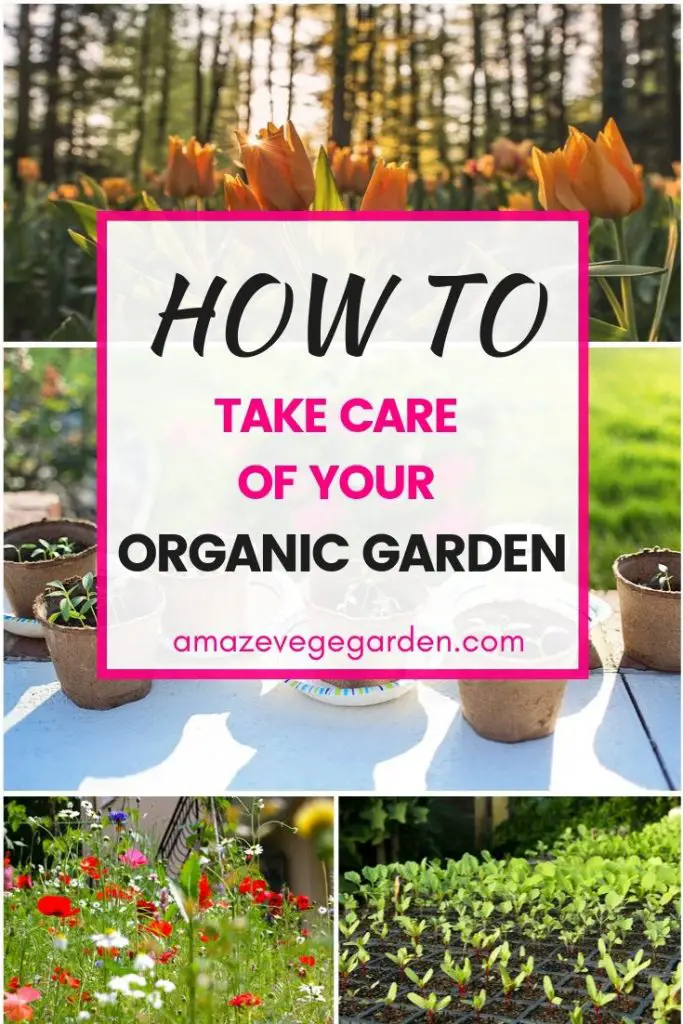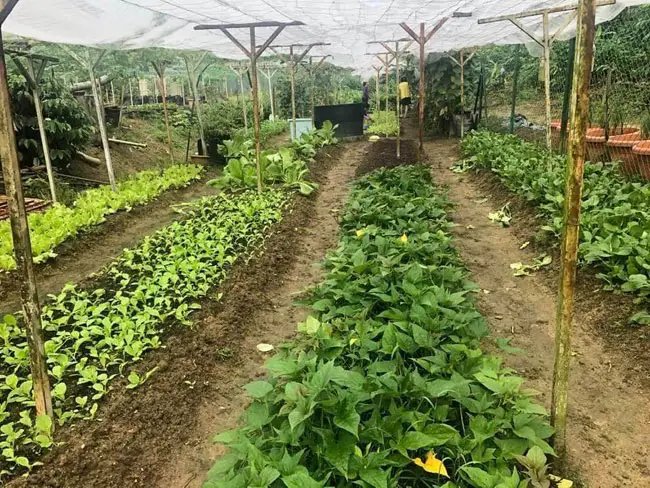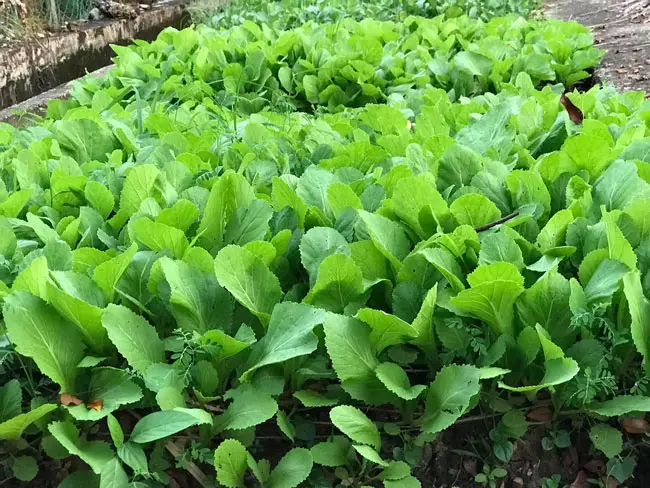People worldwide have become more conscious of what they are putting in their bodies and where their food comes from in recent years. Non-GMO and organic foods are taking up more and more shelf space at grocery stores. In light of this trend, this post will explore what an organic garden is, what benefits they hold for consumers and the environment, and more.
An organic garden is essentially a garden that functions without using pesticides or other harsh chemicals. Gardening in this way has many benefits, including better flavor to food, preventing the death of insects and other animals, and water conservation.
Now, let’s dig deeper into organic gardening to see what it takes to start one, how to maintain it, and other related topics. Who knows—you may find yourself wanting to stretch your green thumb!
What is an Organic Garden?
In the average garden, the gardener or grower is only focused on getting their plants and herbs to grow as quickly as possible while still being healthy and high-quality. However, organic gardeners also consider the environment they are going to grow their plants in. This means they take the time to make nutrient-rich soil for them, among other things.
Organic gardeners do all their work as naturally as possible. They do not use any factory-manufactured products or products containing a high number of chemicals, such as pesticides and herbicides. Other factors that set the two styles of gardening apart are:
- Time: organic gardening does not rely on commercial products or machinery, so it is more time-consuming and labor-intensive than conventional gardening.
- Product: organic gardens yield less produce than traditional gardens as natural nutrition for plants makes them grow slower.
- Nutrition: foods grown in organic gardens have a higher nutrient content than those grown in traditional gardens.
Plants and Herbs Found in Organic Gardens
Any plant or herb you like can be grown organically, but with all the different types of plants that exist, how can you narrow down what you would like to grow when starting? Some of the most common plants and herbs found in organic gardens across climates are:
- Lavender: pleasant scent and drought-resistant
- Thyme: easy to grow and used in cooking
- Garlic: flavorful and lasts a long time
- Blueberries: antioxidant-rich and can live in acidic soil
If you want to grow something that isn’t included on this list or need help on your plant growing journey, a guide for growing organic fruits and vegetables exists! Scroll through it to find advice on growing just about anything.
Organic matter is any natural material that can encourage growth and longevity in the garden, a fertilizer. Examples include:
- Plant roots
- Fungi and bacteria
- Compost
- Green manure
- Wood shavings, hay, straw
Organic matter aims to improve the soil’s structure to thrive in it for a more extended period. The insects and other microorganisms can eat the organic matter, and through this nourishment, they can enhance plant growth. Microorganisms help plants survive by feeding on harmful microbes that would kill them.
If the good microbes die, they drop off nutrients as they decompose, further strengthening the soil. Organic matter also creates acids that can break down the plant roots to more readily take up water. Organic matter is essential for the sustainability of any garden.
Tip: It’s also worth noting that you will need to support your organic garden with proper watering in addition to organic matter and mulch. The more assistance you give your garden, the longer it will provide for you.
Benefits of an Organic Garden
Organic gardening is beneficial for many reasons. The top five benefits of growing an organic garden are:
- Freshness: you have high-quality, fresh, great-tasting produce right at home.
- Wellbeing and Fitness: having pesticide-free produce means you avoid ingesting harmful chemicals, which promotes health. Gardening is also a workout so that you can improve physical fitness.
- Save Money: you no longer have to buy produce at the store.
- Relaxation: pulling weeds and doing other garden chores is relaxing and allows gardeners to think and meditate.
- Helps the Environment: organic gardens lack the toxic chemical runoff generated from pesticides, which leads to several good things for the planet.
Organic gardening has also been found to be helpful in other aspects, such as:
- Sustainability: organic gardens are sustainable for years because the nutrients from the compost and other organic matter feed back into the soil and keep it fertile. It also saves resources like fuel because pesticides and herbicides are not delivered.
- Grow Local: You do not have to rely on produce grown all over the country.
- No GMOs: no extra DNA is added to the plants to improve characteristics like taste, so genetically modified organisms are not consumed.
- Ecosystem Protection: a healthy garden is a safe place for insects and other animals.
Clearly, organic gardens offer much to those who decide to invest in them and the larger ecosystem. But are they better than the conventional gardens people have been using for decades? Let’s find out.
Are Organic Gardens Better Than Traditional Gardens?
The answer to this question is based on personal opinion. Some gardeners tout that organic gardening is the best and encourage everyone to make the switch. Others believe that any attempt to begin gardening is better than none. There are either the organic lovers or the neutral; no one has fully condoned or the condemned traditional method.
Bottom Line: Based on the above, you should choose the best method for the life you lead. For example, if you have more time on your hands, maybe give organic a try. Gardening is fun, so do not stress if you start out doing things the organic way but utilize more conventional methods later.
You can even combine traditional and organic gardening methods to get the best of both if you want. Whichever you get the job done, you will get fresh and flavorful food and reap the benefits of spending time in nature.
Hopefully, you have got some+ good ideas of what organic gardening is about and how it can benefit people. Some benefits include:
- It is a great way to stay healthy and help the environment by doing it.
- You can plant all kinds of products in a safe and chemical-free space that will provide you and your family and friends with high-quality and fresh ingredients.
- Gardening can also give you the means to save money. Growing things in your backyard mean fewer trips to the grocery store.
- Spending time in nature is good for the soul and can help one relax and clear the mind.
- Organic gardens are more sustainable because the nutrients in the compost and other organic matter seep back into the soil to keep it fertile between harvests.
- You don’t have to worry about consuming GMOs.
How to Take Care of Your Organic Garden
For people with an organic garden in their living areas, it can be a full-time job to take care of the garden. If you want to save time and energy for handling your garden, then there are certain steps that you need to carry out to lessen your burden and free up your time.

Put on shiny silver items all through your garden
By doing so, they could act as all-natural pest deterrents without the need for you to put in any chemical substance. The shiny items can disorient flying insects like aphids that call fly with the direction of the sun. The reflection can also help to frighten off bigger pests like rabbits, squirrels, or birds.
Manage your garden hose to avoid frustration
Garden hoses, specifically those that use for longer and heavy-duty ones, can gradually turn out to be unwieldy and annoying if they are all twisted up when you need to drag them to the garden. Invest in a portable hose reel or perhaps a stationary 1, according to your garden configuration, to make it simpler and easier for you to manage your garden hose and make storing it quickly.
Let your youngsters having some involvement in your organic gardening.
Organic gardening tends to be very safe for kids because it ensures that they will not contact harsh chemical substances inside the garden, nor do you need to have any concern about such issues within your garage or sewage. A garden is usually a superb accessible knowledge for your youngsters and provides you a good opportunity to bond when creating healthful food.
It can be probable to grow an organic garden all year if you have enough light supply for an indoor garden. Plants need to have a lot of light to grow adequately, and you will discover bulbs that you will buy to give indoor gardens using the suitable quantity of light to have them thrive and generate a fruitful bounty.
Location is extremely vital to organic gardening.
Your garden ought to be in a location that may get a minimum of ten hours of sunlight through the summer. Before beginning your garden, be sure that your location doesn’t have any big obstructions that cast shadows and block the sun. Plants will need a sufficient quantity of sunlight to live.
Ensure your garden soil is always in a healthful condition
Certainly, one of the ideal methods to deter pests from consuming up your hard work within your organic garden is usually to be sure your soil is fantastic. If your expanding medium becomes imbalanced, it’ll turn into an appealing location for all sorts of unwanted guests. Check pH and moisture levels typically.
Get Rid Of The Grass And Grow Your Own
Using your garden to grow your own fruit and vegetables can be an enriching experience. In financially challenging times, people are increasingly turning over an area of their garden to grow their own produce. There are some points to consider when choosing to dedicate an area of your garden for this purpose.

Have you thought about raised beds?
Fruit and vegetables can be grown in several ways, either directly in the ground, in raised beds, or containers. You can choose the manner which suits you and your garden best. Raised beds and containers tend to be easier to access and keep weed-free. However, they do need more watering due to their free-draining nature.
By contrast, direct into the ground can mean that the plants have a greater space for root systems and dry out less readily, but weeding becomes more of a challenge.
Rotate your crops
When considering growing vegetables, you should aim to use crop rotation to maintain healthy soil and optimize your crops’ health. You can split produce into four main groups – legumes, alliums, brassicas, and root vegetables.
Legumes include all your peas and beans, alliums include onions and shallots, brassicas include cabbages, cauliflowers, and sprouts, whilst root vegetables include carrots, parsnips, and beetroot.
If you can split your growing area into four sections, and grow a group in each section, then the following year, you can rotate your groups so that crops don’t grow in the same area for two years in a row.
Make the most of your growing space.
Whilst bearing in mind the groups of crops, you can also consider maximizing the potential of the growing season by interspersing fast-growing crops in between the crops which are slower to germinate. For example, you could consider growing rows of quick-growing salad and radishes in between your rows of slower to germinate parsnips and carrots.
Companion planting
Companion planting is a useful technique to control pests around your crops. The principle is that by planting certain plants near your vegetables, pests that would usually eat and damage your crop will be attracted to the companion plant instead.
Nasturtiums and marigolds are great examples of companion plants, with the bonus of edible flowers to be enjoyed too.
There is a lot of pleasure to be gained from growing your own fruit and vegetables, and whilst it might seem like there is a lot to remember, the important thing is to try it and enjoy yourself.
Did you find this article useful? Would you like to get back to it later? Save THIS PIN below to your gardening board on Pinterest!





